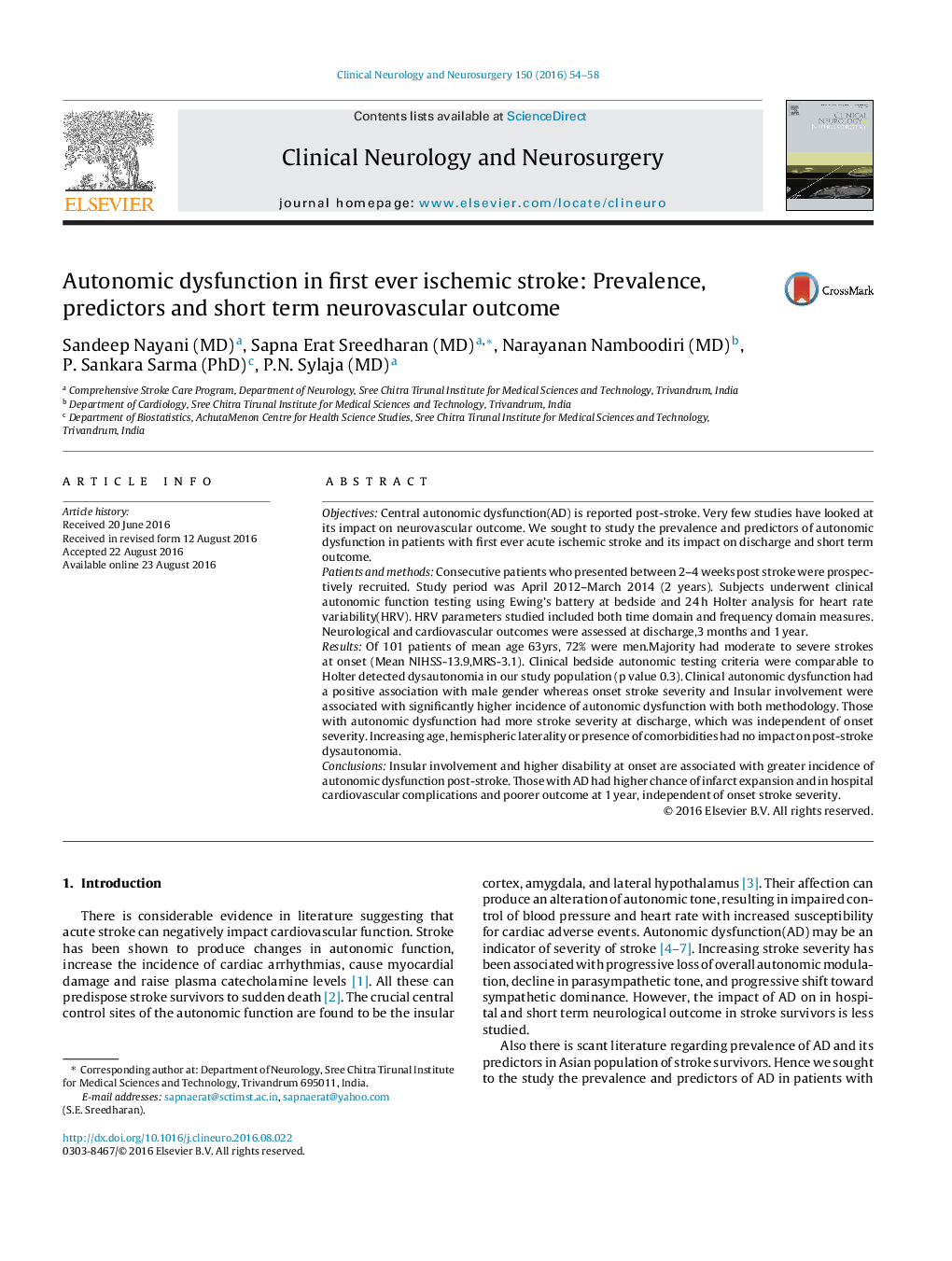| کد مقاله | کد نشریه | سال انتشار | مقاله انگلیسی | نسخه تمام متن |
|---|---|---|---|---|
| 3039431 | 1579672 | 2016 | 5 صفحه PDF | دانلود رایگان |
• Few studies have looked into the impact of autonomic dysfunction on post stroke neurovascular outcome.
• We compared clinical and Holter based autonomic testing in post stroke survivors.
• Clinical and Holter based autonomic testing were comparable in stroke patients.
• Insular involvement and higher disability at onset were positively associated with autonomic dysfunction.
• Autonomic dysfunction predisposed to more vascular complications and poorer outcome at 1 year.
ObjectivesCentral autonomic dysfunction(AD) is reported post-stroke. Very few studies have looked at its impact on neurovascular outcome. We sought to study the prevalence and predictors of autonomic dysfunction in patients with first ever acute ischemic stroke and its impact on discharge and short term outcome.Patients and methodsConsecutive patients who presented between 2–4 weeks post stroke were prospectively recruited. Study period was April 2012–March 2014 (2 years). Subjects underwent clinical autonomic function testing using Ewing’s battery at bedside and 24 h Holter analysis for heart rate variability(HRV). HRV parameters studied included both time domain and frequency domain measures. Neurological and cardiovascular outcomes were assessed at discharge,3 months and 1 year.ResultsOf 101 patients of mean age 63yrs, 72% were men.Majority had moderate to severe strokes at onset (Mean NIHSS-13.9,MRS-3.1). Clinical bedside autonomic testing criteria were comparable to Holter detected dysautonomia in our study population (p value 0.3). Clinical autonomic dysfunction had a positive association with male gender whereas onset stroke severity and Insular involvement were associated with significantly higher incidence of autonomic dysfunction with both methodology. Those with autonomic dysfunction had more stroke severity at discharge, which was independent of onset severity. Increasing age, hemispheric laterality or presence of comorbidities had no impact on post-stroke dysautonomia.ConclusionsInsular involvement and higher disability at onset are associated with greater incidence of autonomic dysfunction post-stroke. Those with AD had higher chance of infarct expansion and in hospital cardiovascular complications and poorer outcome at 1 year, independent of onset stroke severity.
Journal: Clinical Neurology and Neurosurgery - Volume 150, November 2016, Pages 54–58
